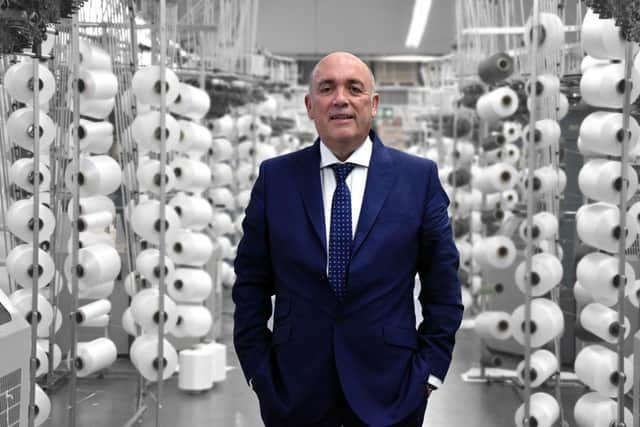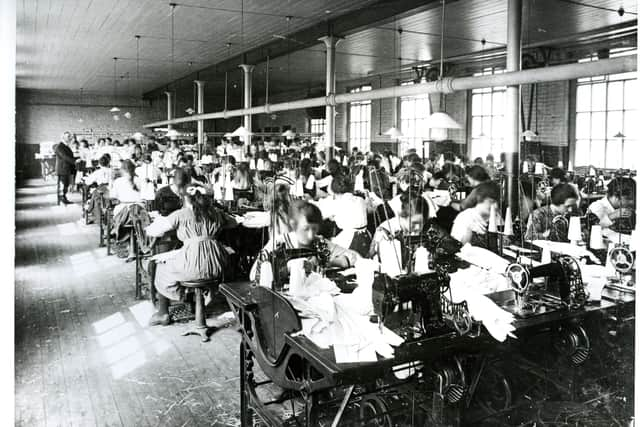OPINION: Past identity and future salvation
and live on Freeview channel 276
The industry was at its peak in the 1920s employing 18,000 mainly females, in 44 factories. This one industry created more employment than all of the other industries in the City combined.
Derry and Strabane families today fondly remember their mothers and grandmothers working in the shirt factories. The women even added the term “the bars” to the local vernacular; when they had some news to share, they would bang the bars of their sewing machines. The Inner City Trust marked the contribution of the ‘factory girls’ in 2019 with a mural in the Craft Village depicting a Singer sewing machine and smiling faces leaving work at the end of the day.
Advertisement
Hide AdAdvertisement
Hide AdThis commission brought joy to the many women who left the shirt factories in the 1980s and 1990s by recognising their vital role in the industry.


When Smyth and Gibson, the last remaining shirt factory in Derry was closing in 2019, O’Neills seized the opportunity to retain the very highly skilled workforce and the old railway station premises at Victoria Road on the banks on the Foyle. For many years textile manufacturers have gone overseas to cut costs but that trend is changing and the sector in Ireland and England is enjoying a renaissance.
This is in response to a growing domestic demand for speed to market, convenience and reliability as well as increasing consumer demand for high quality, locally made garments with a lower environmental impact.
The textile industry in these islands is innovative and diverse and is a significant driver of economic growth.
Advertisement
Hide AdAdvertisement
Hide AdO’Neills employ over 700 staff in the north west and we have been able to sustain employment due to our commitment to local manufacturing, innovation and quality products.


O’Neills is constantly innovating to serve its growing local and global customer base.
Taking part in the Made Smarter Technology Accelerator programme supported by Digital Catapult, will help ensure we have access to the latest digital innovation which will ultimately improve how our sector operates.
As we go through one of the toughest trading environments that I have seen in my career, with businesses closed and many more struggling to survive, we need to recognise the vital role of textile manufacturing in this region.
Advertisement
Hide AdAdvertisement
Hide AdI firmly believe that re-shoring the manufacture of textiles and PPE, could be the remedy that will help rebuild the economy after the major shocks we have seen from COVID, climate change and Brexit.
Kieran Kennedy is MD of O’Neills Irish International Sports Company Ltd
Comment Guidelines
National World encourages reader discussion on our stories. User feedback, insights and back-and-forth exchanges add a rich layer of context to reporting. Please review our Community Guidelines before commenting.